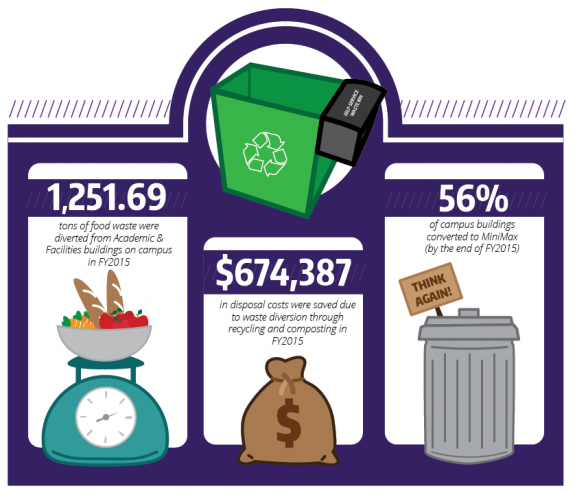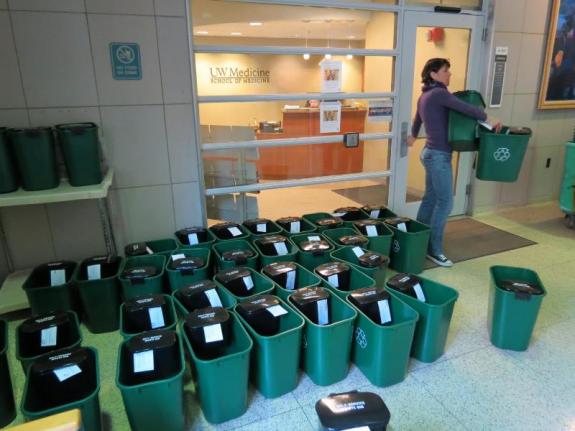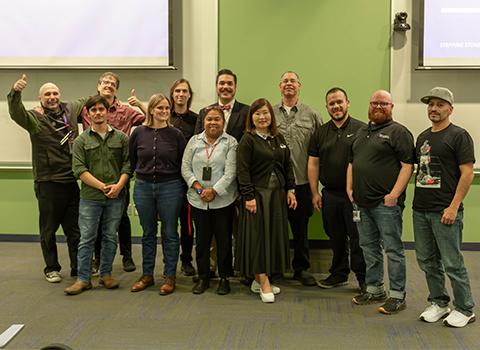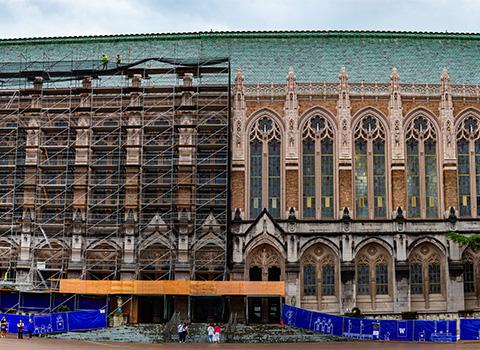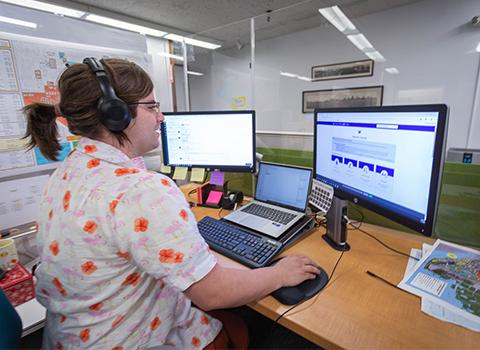What is MiniMax?
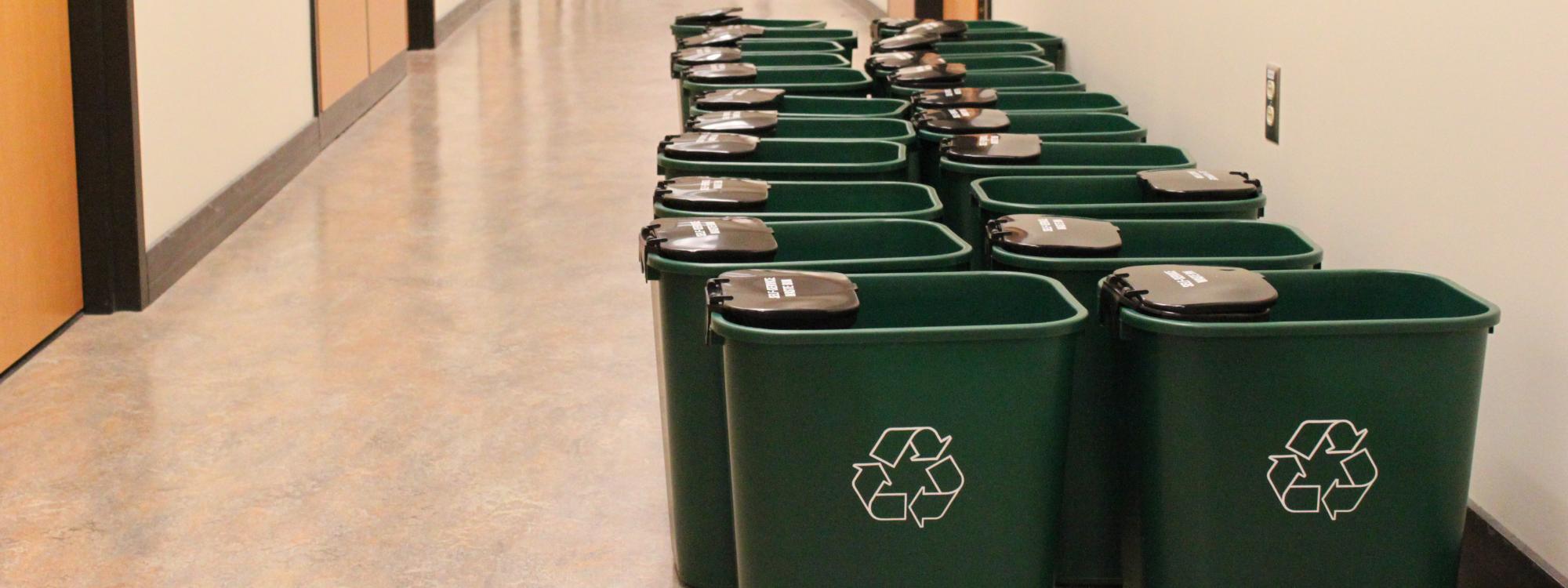
We’ve all seen them: the green and black bins, tucked away under desks, waiting to be filled with recyclables and garbage.
MiniMax has taken over.
According to Erica Bartlett, the UW Recycling program coordinator, MiniMax is designed to minimize waste and maximize recycling and composting. In buildings that adopt MiniMax, the waste collection process adjusts to standardize containers within buildings. The self-service model builds awareness about personal responsibility for waste, and helps take a step toward the University of Washington’s waste diversion goals.
Bartlett said in an ideal situation, 100 percent of campus buildings would participate in MiniMax, but for now, the goal is to reach 60 percent adoption by the end of the fiscal year 2016. The University of Washington is aiming to reach 70% waste diversion by 2020, and MiniMax can help move in this direction.
Custodial Services and UW Recycling have been hard at work over the years to maintain clean and sanitary environments, all while coming up with innovative solutions to better serve the campus community.
Emily Newcomer, the UW Recycling operations manager said MiniMax helps improve the waste collection infrastructure.
“When a building adopts MiniMax, not only do occupants agree to be responsible for the waste and recycling that they generate within their own deskside bins, they also have increased accessibility to recycling and composting containers throughout the building. This makes it easier for building occupants to do the right thing and dispose of waste in a responsible manner,” Newcomer said.
Bartlett said MiniMax provides a wide range of benefits, both for the environment and for the MiniMax user.
“I would also encourage the individual to look at the waste that they generate in one day. They might be surprised to find the majority of ‘stuff’ they throw away should actually be composted or recycled, especially here on campus where all of the café to-go ware is compostable. Very little of what we throw away is truly garbage. Having increased accessibility to recycle and compost bins as a result of MiniMax makes it easier for the campus community to do the right thing,” Bartlett said.
